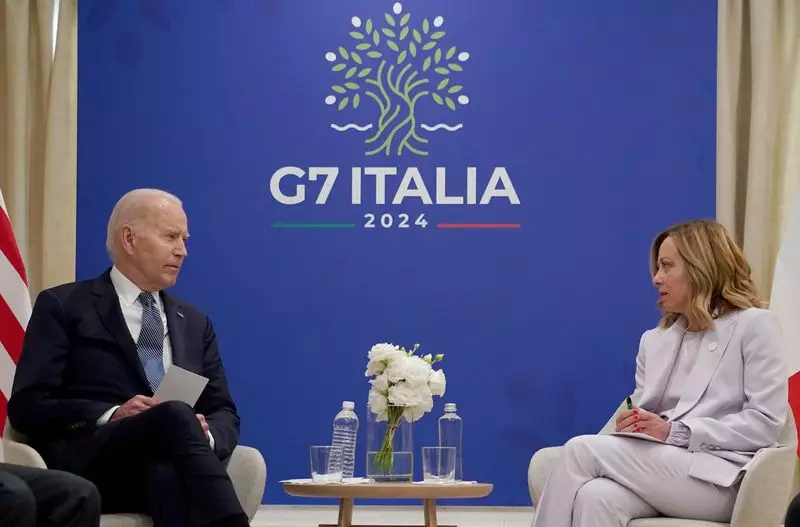Recently, G7 leaders have been engaging in discussions to address the concerning issue of China’s trade policies. A senior U.S. official has highlighted the need for additional steps to level the playing field in trade with China and protect their economic security.
The U.S. official emphasized that China has been operating with unfair and anti-competitive economic practices for too long. There is a growing consensus that China’s policies and subsidies are causing global spillovers and harmful overcapacity, which adversely impact firms in various sectors such as solar, wind, electric vehicles, lithium-ion batteries, medical devices, semiconductors, steel, and more.
In response to China’s non-market policies and practices, the United States and its G7 partners along with the European Union are working towards building diversified supply chains and creating more resilient economies. There have been instances of increased tariffs on certain sectors like electric vehicles by both the U.S. and the European Union.
The official highlighted that China’s trade practices are not only affecting advanced economies but also impacting developing countries and emerging markets worldwide. This has raised concerns among the G7 leaders about the need for collective action to address these harmful practices and commit to working together in response.
It is crucial to note that the objective of addressing China’s trade policies is not to constrain its economic development. Instead, the focus is on ensuring fair competition and protecting workers from unfair Chinese practices. The G7 leaders are striving to create a level playing field in trade that benefits all parties involved.
The concerns raised by the G7 leaders regarding China’s trade policies reflect a growing consensus on the need to address unfair economic practices and ensure a more equitable global trading environment. By uniting against harmful practices and committing to working together, the G7 aims to promote fair competition and economic security for all.

